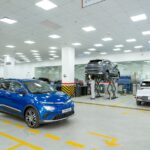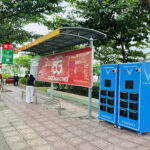The sharp increase in greenhouse gas emissions from human activities has led to climate change. To mitigate this, countries worldwide have implemented and planned various countermeasures, including green transportation.
Today, electric vehicles are considered the most viable solution for green transportation. However, most countries have planned to ban internal combustion engine vehicles far into the future.
But Ethiopia, an African country, has banned the import of gasoline and diesel vehicles since February of this year.
Import ban unless they’re electric!
This drastic decision stems from the country’s significant expenditure on fossil fuel imports. Ethiopia’s Minister of Transport and Logistics, Mr. Alemu Sime, revealed that in 2023, the country spent approximately $7.6 billion on gasoline and diesel imports, consuming a substantial amount of foreign currency, a resource the country lacks.
Half of the imported fuel is used for transportation, while Ethiopia’s electricity production is relatively clean, with about 90% generated from hydropower and the remainder mostly from renewable sources such as wind power.
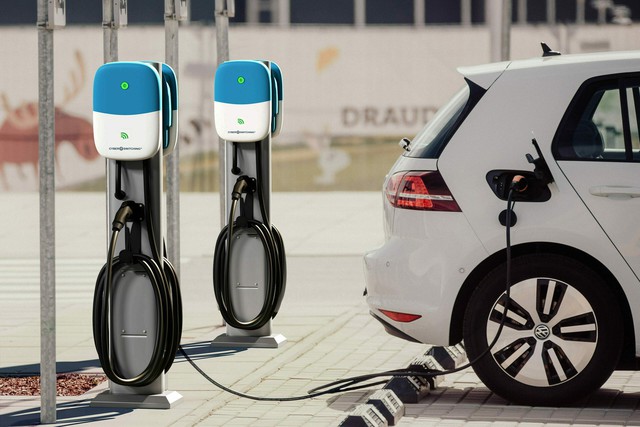
Illustration: Cyber Switching
Faced with this situation, Ethiopia boldly imposed an import ban on internal combustion engine vehicles. Mr. Alemu Sime stated, “The decision has been made that cars will not be allowed to be imported into Ethiopia unless they are electric.”
This ban has been in effect since February 2024.
At that time, Ethiopia’s decision was considered the earliest globally, as the European Union planned to enforce a sales ban from 2035, similar to Canada, Singapore, India, and several states in the US. With this ban, Ethiopia became the first country to prohibit gasoline and diesel vehicles.
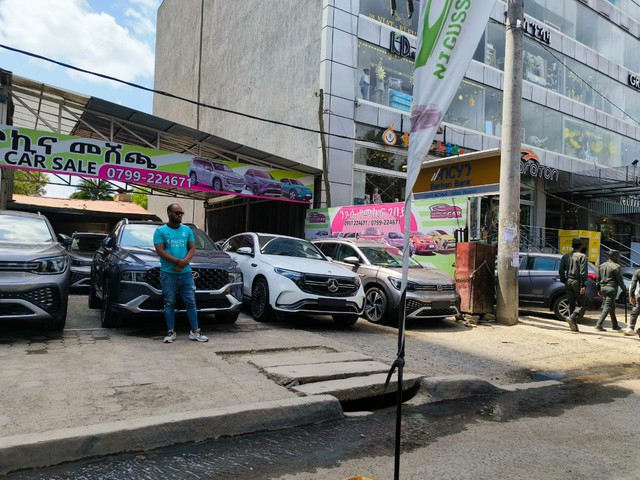
A car dealership selling both gasoline and electric vehicles. Photo: Moses Nderitu / Cleantechnica
While this ban prohibits the import of fully built internal combustion engine vehicles, it does not extend to knock-down kits for local assembly. However, as these kits are not prevalent, the ban still largely favors the development of electric vehicles, coupled with existing tax incentives.
In parallel, Ethiopia has implemented policies to promote local assembly of electric vehicles. These advantages have prompted several companies to consider setting up factories in the country.
Nonetheless, the ban on gasoline and diesel vehicles is considered premature, causing inconveniences in practice, as reflected in a technology-focused publication.
Has the shift to electric vehicles been too hasty?
The website Rest of World recounted stories from Ethiopia following the import ban on internal combustion engine vehicles. The article begins with the experience of Araya Belete, an employee tasked with purchasing cars for his company; he opted for four electric vehicles from China’s Kas Auto.
While the purchase was straightforward, challenges arose during usage and maintenance. When issues occurred, local mechanics in Araya Belete’s area were unfamiliar with electric vehicles, and the user manuals were in Chinese. To address these problems, he had to resort to learning from YouTube videos.
Moreover, Araya Belete also highlighted the lack of charging infrastructure as a significant inconvenience.
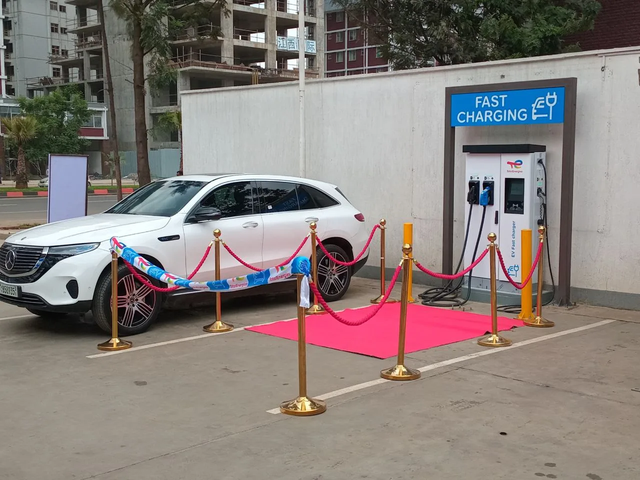
An electric vehicle charging station by TotalEnergies in Ethiopia.
Yizengaw Yitayih, a climate change expert at Ethiopia’s Ministry of Transport and Logistics, revealed that across its vast land of nearly 1.222 million square kilometers (for context: Vietnam spans approximately 331,690 square kilometers), Ethiopia has only 50 public charging stations.
Rest of World attempted to locate some of the government-run charging stations. Out of the four stations they found, only half were functional. According to the Ministry of Transport and Logistics, Ethiopia already has over 100,000 electric vehicles, and in the next ten years, the country aims to reach 500,000.
However, achieving this goal remains dependent on the government’s efforts.
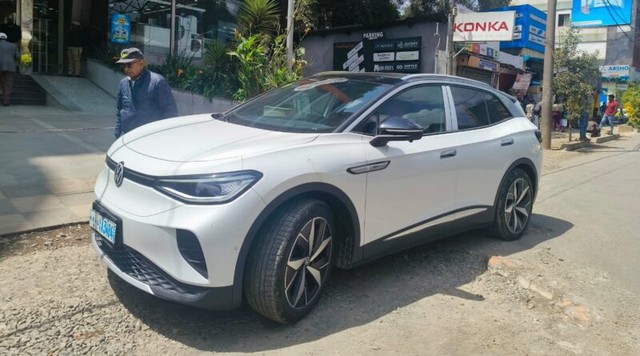
A Volkswagen ID.4 electric car on the streets of Ethiopia.
The government is not the sole investor in electric vehicle charging infrastructure. Green Tech Africa, TotalEnergies, and Haile Motors are also constructing stations, but it’s worth noting that private initiatives may not significantly impact the situation as Ethiopia continues to struggle to attract foreign investment.
Apart from the lack of charging stations, Ethiopia also frequently faces power shortages. This issue has been highlighted by several Ethiopian newspapers, suggesting that the problem has worsened in recent years and affects not just the capital but also various provinces across the country.
The Electric Revolution: Grab’s Surprising Choice for 1,000 New Electric Taxis
Gojek, the rival of Grab, has unveiled an ambitious plan to transition its fleet to electric motorcycles by 2030. This bold move underscores the company’s commitment to sustainability and reducing its environmental footprint. With this initiative, Gojek aims to lead the industry towards a greener and more sustainable future, one that promises a cleaner, quieter, and more efficient ride-sharing experience for both passengers and drivers alike.
The Wuling Mini EV’s ‘Pitfall’ in Vietnam: ‘It’s Not a Bad Car, But It Fails to Create Demand’
“Creating demand among customers is crucial for TMT Motors and Wuling’s success with their new product following the Mini EV, asserts prominent journalist Nguyen Thuc Hoang Linh. With his insightful analysis, Linh highlights the importance of understanding consumer desires to ensure a positive market response for the upcoming release.”



